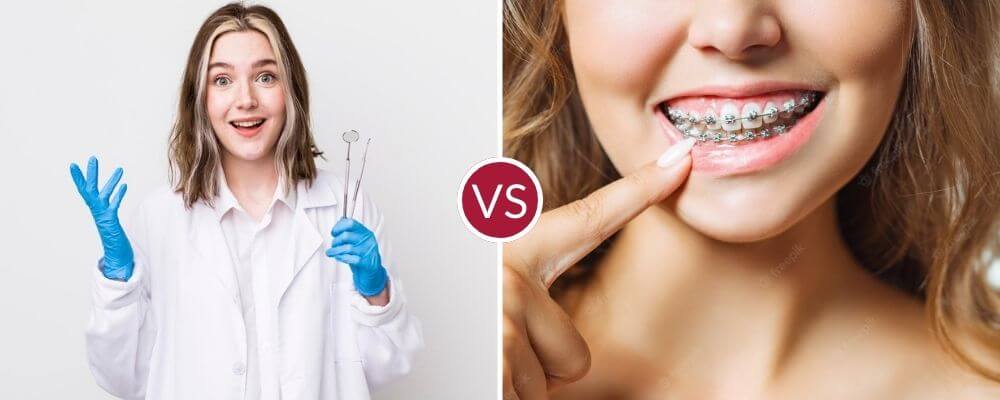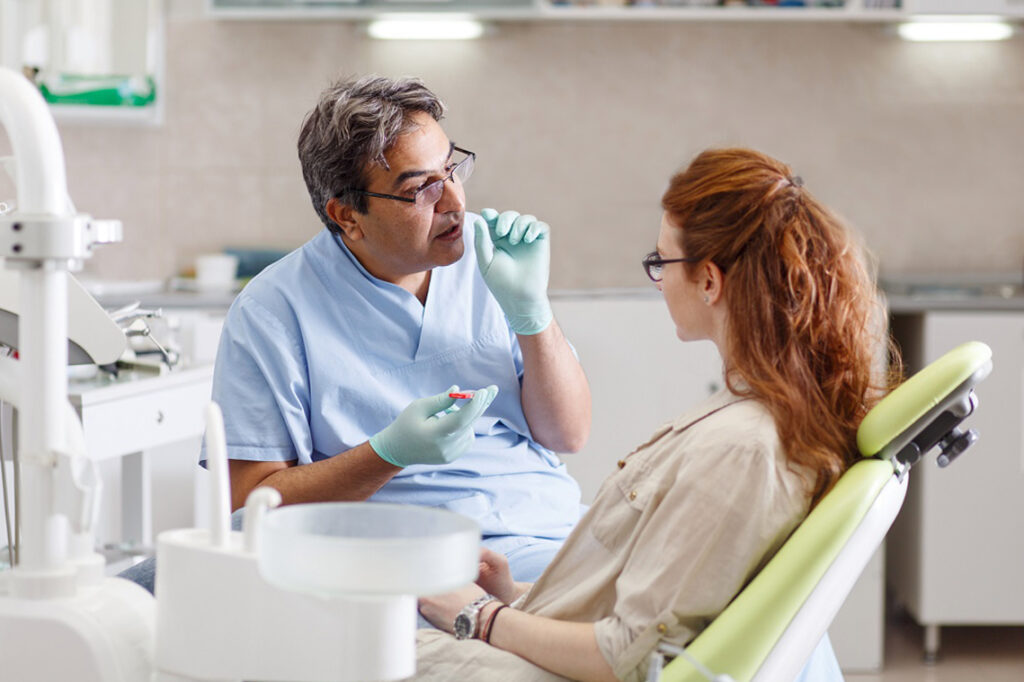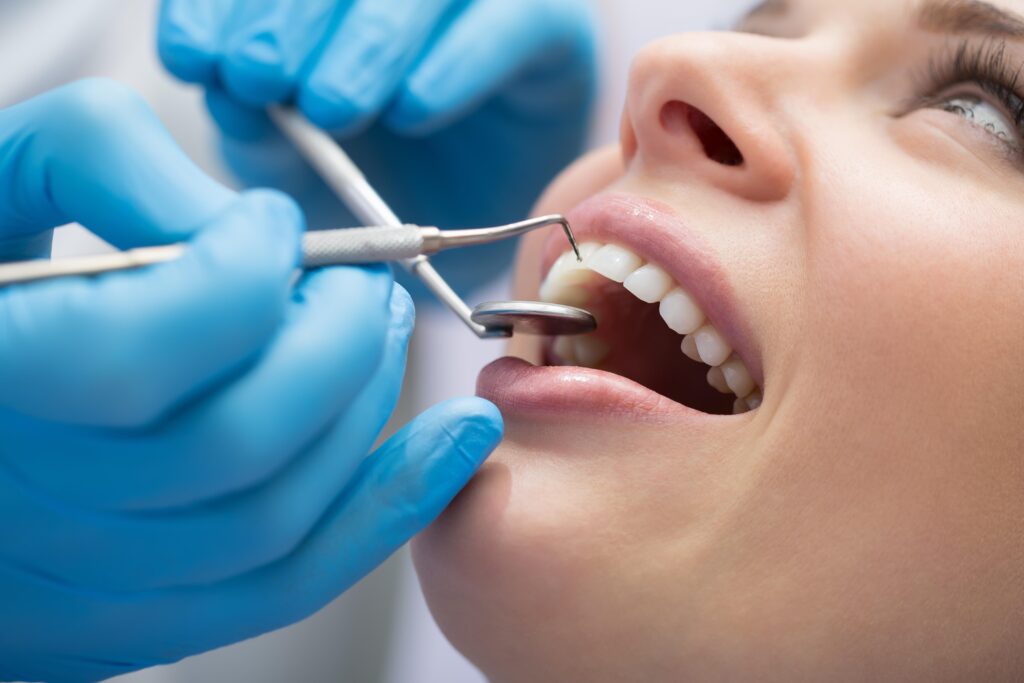
Both dentists and orthodontists are qualified doctors that specialize in providing oral healthcare services and treatments.
Dentists study general dentistry and are trained to diagnose, prevent, and treat oral healthcare problems related to your teeth, tongue, gums, and mouth.
While orthodontists undergo additional education, training, and certifications to be able to provide treatment for oral problems related to teeth, jaws, gums, and mouth.
But these are not the only differences between dentists and orthodontists. In this article, we will explain the similarities and differences between dentists and orthodontists to help you distinguish which doctor you need to visit.
What Are Dentists?

Dentists are doctors specializing in oral healthcare. They take pre-dentistry degrees and graduate school of dentistry.
Just like all doctors, dentists are required to undergo extensive training, practice, and knowledge before they can do hands-on clinical practice. The majority of dentists specialize in general practice.
When it comes to the treatments and services they offer, certified dentists can diagnose, prevent, and treat oral healthcare problems related to your teeth, tongue, gums, and mouth.
They’re also qualified and experienced in cleaning your teeth, putting fillings, teeth whitening, and more. There are also dental hygienists that can also do the cleaning for the dentists but that is not always the case with personal or small dental practices.
What Are Orthodontists?

Orthodontists are doctors that provide oral healthcare diagnosis, prevention, and treatments. They’re dentists specializing in teeth and jaw correction alignment.
Orthodontists are trained to diagnose, prevent, and treat oral healthcare conditions on your gums, teeth, and mouth, like dentists.
Certified orthodontists focus more on teeth and jaw alignment and treatments. If you or your family members have crooked teeth or protruding jaw, orthodontists from Kumra Orthodontics Washington DC are what you need. They’re also qualified to provide services, treatments, and surgeries related to teeth and jaw problems.
Orthodontists vs Dentists: Similarities
Both certified dentists and orthodontists can perform oral care diagnoses and treatments. Their goal is to ensure you have a healthy and good-looking smile, teeth, gums, and mouth.
All orthodontists are dentists. But not all dentists are orthodontists. Orthodontists can perform all the treatments and procedures dentists perform. They just go to additional schooling, training, and knowledge which let them specialize in orthodontics and perform the needed procedures and treatments.
Orthodontists vs Dentists: Differences
Even though both dentists and orthodontists are doctors specializing in oral healthcare services, there are differences in the education and training they went through.
Therefore, the services they offer also have differences. Here are two main differences between orthodontists and dentists.
Education & Training

In education, dentists and orthodontists have the same base schooling such as getting a pre-dentistry degree and finishing graduate school of dentistry. However, orthodontists are required to take additional certification, training, and education to be allowed to practice.
Dentists must complete their residency and be thoroughly trained before getting certified. During their last 2 years in dentistry school, dentists should treat patients while being supervised by a licensed and authorized dental school.
Afterward, they should take and pass the National Dental Examination to get their license and be able to practice.
After taking and passing the licensure, orthodontists attend an additional orthodontic residency program which takes about 2 to 3 years. After completion, they can take their specialty certification for orthodontics.
If orthodontics want another certification, they can take the American Board of Orthodontics Board Certification.
Services
Certified dentists are qualified and allowed to practice dentistry. Just like general doctors, general dentists are able to perform various treatments and procedures.
But it doesn’t mean they’re specialists in each treatment. For example, dentists can perform tooth extraction but that doesn’t mean they’re oral surgeons.
Another one is dentists can do root canals but they’re not certified as endodontists. Remember, there are many sub-specializations in dentistry. Even though general dentists can perform a treatment, it doesn’t mean they’re specialists in the said treatments.

Dentists can provide the following services:
- Teeth extraction
- Cleaning and fillings
- Conduct and explain dental X-rays
- Repair cracked or broken teeth
- Treat gum diseases like gingivitis
- Prescribe dental treatment and drugs
- Install veneers and crowns
- Perform oral surgeries
- Improve oral hygiene and health
Orthodontists mainly focus on their specialization which are teeth, facial bones, jaws, and soft tissue oral health care services. But they can also provide and execute all the services general dentists offer.
Orthodontists can provide the following services:
- Diagnose, prevent, and treat misaligned teeth, facial bones, and jaws.
- Personalize a treatment plan for braces, aligners, and retainers.
- Conduct teeth alignment surgeries.
- Install various dental appliances like braces, Herbst appliances, palatal expanders, or orthodontic headgear.
- Oversee and manage facial bone growth in children.
Who Should I Visit, an Orthodontist or a Dentist?

Dentists are general dental practitioners and orthodontists are specialists. If you need regular or standard dental services, consult a dentist. This includes teeth cleaning, decay, extraction, or repair, oral inflammation, gum problems, and infections.
While orthodontists are responsible for treating tooth crowding, teeth alignment, palate expansion, and jaw malocclusion.
There are instances when a dentist refers their patients to an orthodontist. This means they need a specialist for their case.
If you still haven’t been assessed by an orthodontist, it’s best to do it now, especially if you have kids. The earlier they’re checked and diagnosed, the faster the treatment will be done and avoid any oral healthcare problems in the future.




